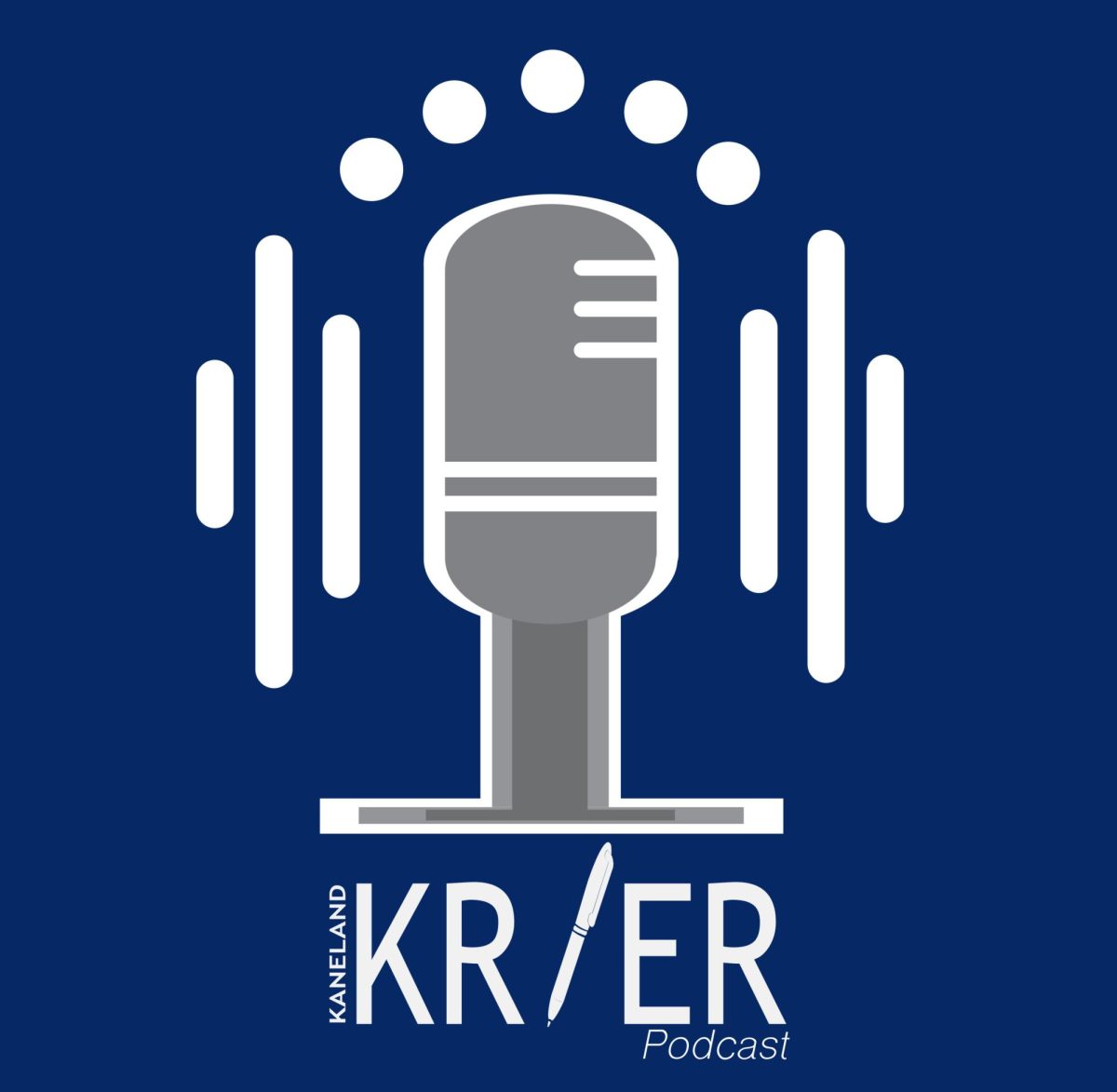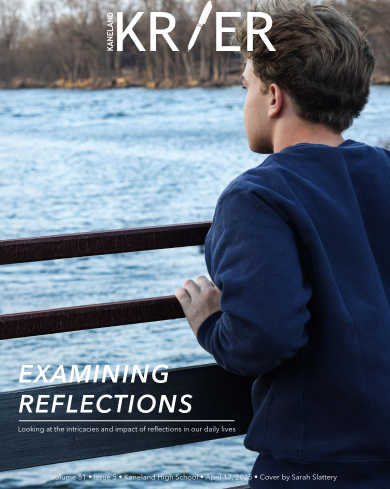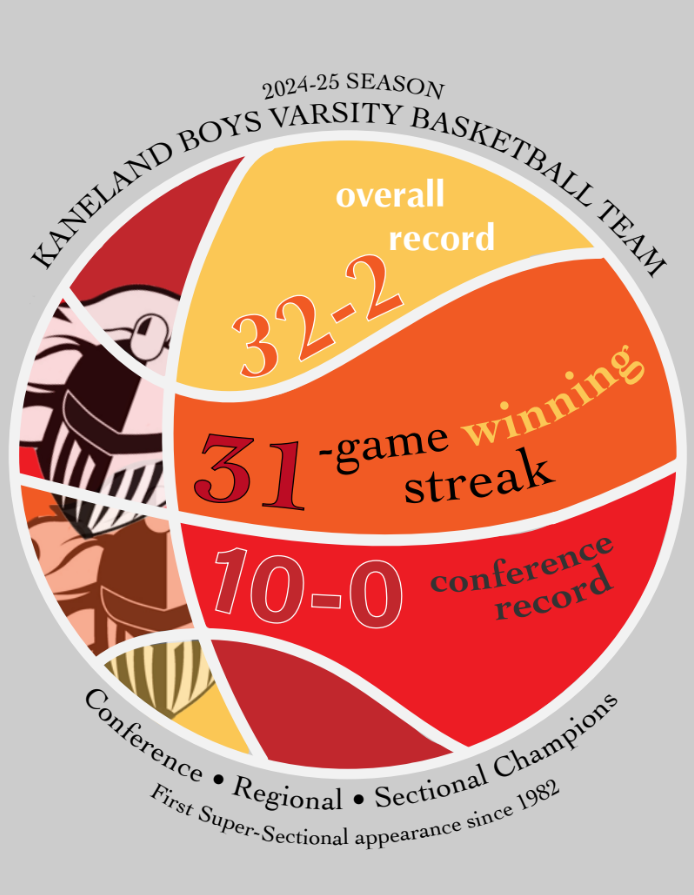By: Sam Schrepferman and Nick Boose, editors
All his life, senior Tucker Debolt has been in love with music. Debolt is in both band and choir. Music is his life.
“[Music] is always going through my head,” Debolt said. “I’m always sharing music with people.”
Debolt listens to music all the time, wheather its doing homework, at school, or listening at home. Because of his love of music, he wishes to continue his performing life after college.
Just like Debolt, music is something that many individuals listen to. Music lovers have their personal favorite genre(s). The music students listen to reveals what mood students might be in, or even just gives a way to accomplish tasks on-hand.
“[Music] is something I need in my life every single day,” freshman Ally Heinzer said.
Based on our poll, conducted Feb. 21, Kaneland students tend to listen to pop more than any other music genre. Fifty-three percent of Kaneland students listen to pop. To some people, music is just a way to stay focused, to release stress or to even just gives them motivation. For Kaneland students, it’s mostly a way to calm down and focus.
Many students believe that music affects emotions, both positively and negatively.
“The tone or flow of the music will make you feel different,” sophomore Austin Beaulieu said.
Emotional Music
Music fans have their own likes and dislikes. With the type of music students like, it tends to reflect emotion. The music students listen to also affects the way their brain responds to the different highs and lows of the music.
“Some songs pick you up, but some bring you down,” sophomore Jeremy Faletto said.
Scientists at Florida Atlantic University have identified key aspects of musical performance that cause emotion-related brain activity. They had people listen to a synthesized version and regular piece of music.
Both pieces of music had the same melody, harmony, rhythm, average tempo and volume. But only the piece with expressive performance included dynamic changes in tempo and volume. This evoked different emotional responses.
This study showed that the human touch to music has a greater emotional effect on the human brain.
“It had previously been theorized that the mirror neuron system provides a mechanism through which listeners feel the performer’s emotion, making musical communication a form of empathy,” Edward Large Ph. D said.
Other studies show how different types of music can affect your brain.
Many studies like this have been performed to help people with depression, Williams syndrome or other diseases.
Being stressed and depressed impacts the brain. It affects the level of serotonin in the brain. According to Your Dictionary: Science, listening to music increases the levels of serotonin in the brain. With the increase of serotonin it creates positive effects with learning, mood, sleep functions and other processes.
Certain genres of music have been proven to cause the mood of students to be negative. According to The Mental Mind, rap and heavy metal can cause students to feel more anger and hatred.
Pop and alternative rock seems to sway emotions more positively. Music sometimes alters brain waves even after listening to it. This in turn creates a better mood even after the music.
Marconi Union
The Marconi Union is a British Musical Trio. On Oct. 16, 2011, the Marconi Union joined with the British Sound Academy to create the most relaxing song possible. They created an eight-minute song, calling it “Weightless.”
The purpose of the song is meant to put a listener into a trance-like state. Once there the song is to calm the mind and make the listener relax.
The song contains several instruments. The intentions of each instrument are meant to calm the mind.
According to the Mindlab Institution, “Weightless” has a huge impact on brain waves and brain activity. Listeners gained sixty-five percent less anxiety than they had started out with. It also brought the heart rate down to thirty-five percent of its normal resting rate.
The song captured the ears of many. In Nov. 2011, Marconi Union was featured in Time Magazine. They were on a list of inventors of the year because of their creation of “Weightless”.
“Music just solves everything,” sophomore Anna Hayman said.
Kanelandís Groove
From school to home, students at Kaneland listen to music everywhere they go. During the poll conducted students were asked a variety of questions about music.
“I literally listen to music everywhere I go. Music is my life. I couldn’t live without it,” sophomore Grace Sizemore said.
Forty percent of students believe that music changes the mood of a student.
“Music is very emotional and can bring back memories, good and bad. It can calm people down and help them maybe listen to a voice of reason and not feel so alone,” sophomore Morgan Withey said.
Many students have set up different play lists. Each playlist has different songs for it to be played depending on the emotion they feel.
“[I have] a Christian playlist. There is one with a smiley face, and there is one for sleep,” Withey said.
Students listen to a variety of music. Fifty-two percent of students at Kaneland listen to rap. The next most listened to genre is country. Forty-eight percent of Kaneland students listen to country.
“People are brought up listening to different types of music,” Withey said.
Kaneland music background comes from everyons own personal taste.
Their background in music can even come from the way they are brought up or even from who they are friends with.
Music Therapy
According to the Music Therapy Association, music therapy is the clinical and evidence-based use of music interventions to accomplish individualized goals within a therapeutic relationship by a credentialed professional who has completed an approved music therapy program.
During a session with a music therapist, they will look at one’s emotional responses to different music being played. Through the results they find, the therapist designs musical sessions for the patient within groups or sessions alone.
Each song is suppose to influence the brain waves. The alteration of brain waves changes the emotions of the listener.
People of any age can benefit from music therapy. It helps with wide range of problems that include learning disabilities, substance abuse, mental health needs, chronic pain and much more.
Hayman looks forward to being a music therapist in the future.
“[Music therapy] basically helps people with their problems through music. The problems include both motor skills and social skills,” Hayman said.
In order to prepare herself for the possibility of being a music therapist, she is taking three music classes and is going to start taking voice lessons.
Music Myths
With music being a way to help people as seen with music therapy, there have been myths about what listening to music can do to help.
It has been said that listening to music before a test can help students perform better, or music can make anyone smarter.
In 1993 there was a study called the Mozart Effect. This was a study showing that if people listened to ten minutes of Mozart before a spatial skills test it improved performance. Soon after the Mozart Effect, there were other studies with specialized authors like Stephen King so see the outcomes of brain levels.
Researchers soon after dug deeper to find out why the Mozart Effect was happening. It was a mystery to people why the benefits of music were being overstated.
“It’s really not a mystery,” University of Toronto psychologist Gabriela Husain said. “It’s a well known fact that if people who feel vigorous and are in a good mood score better on test.”
The Mozart Effect, showed ways music affects your brain. The music makes people feel good about themselves and are ready to take the test. The music was just acting like a confidence booster to help anyone with the test, it did nothing to make them any smarter.
Music therapists try to stimulate the emotions through music. Trying to convey their thoughts in a tangible mannor. Within music therapy many people believe that only a person with musical talent can benefit from music therapy.
According to the official website of music therapy, this is not the case. Anyone can benefit from having music therapy. The therapy sessions are decided based on the clients needs. Having a musical background has no bearing on that at all.








